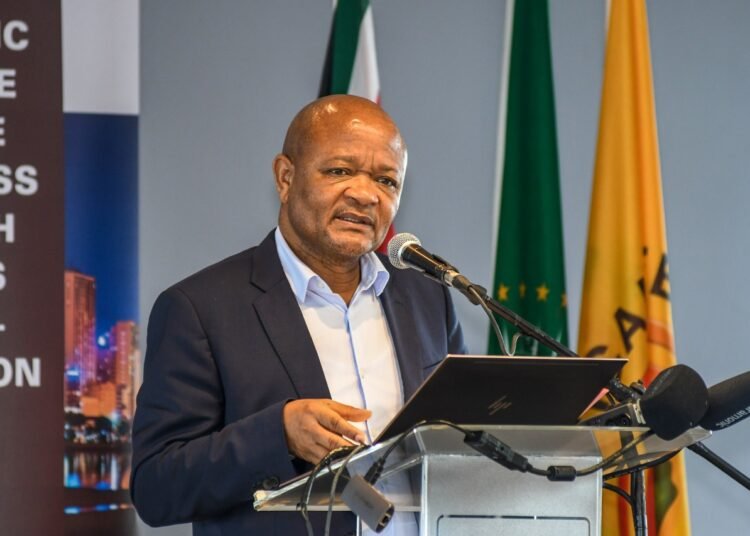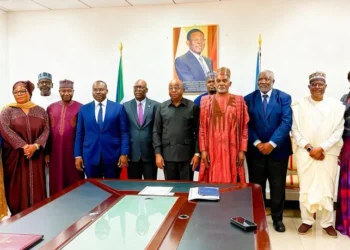The Department of Water and Sanitation (DWS) says it is working tirelessly to assist municipalities in KwaZulu-Natal that are facing water challenges.
This after the South African Human Rights Commission (SAHRC) released its final report and recommendations following an investigation into water challenges in that province.
“The challenges are known to the department, and the Ministry of Water and Sanitation is working tirelessly to assist the municipalities in the province, which are Water Services Authorities (WSAs), to meet their constitutional obligation for water and sanitation services provision to citizens.
“The Blue, Green and No-Drop reports, released in June 2023, are regulatory and support mechanisms of the department for municipal drinking water quality, wastewater management and water conservation and demand management. [The reports] also provided evidence of the deteriorating state of water and sanitation situation in most of these municipalities.
“The department… welcomes the report and its recommendations, which align to the findings of the department. The department further acknowledges the critical task of improving the management of waste water and restoration of water quality and reliability of supply, and that this will require increasing investments, ensuring revenue sufficiency ,as well as professional and capable technical and managerial skills,” the department said in a statement on Friday.
The DWS explained the steps it is taking to address these challenges, including funding of some R7.8 billion for several water infrastructure projects.
“Through its water entity, uMngeni-uThukela Water Board, the department has also allocated nearly R2.3 billion for the following projects: Greater Mpofana Bulk Water Supply Project in uMgungundlovu District; the Maphumulo Bulk Water Supply Project in iLembe District; UMshwathi Bulk Water Supply Project servicing both uMgungundlovu and iLembe Districts, and Lower uMkhomazi Bulk Water Supply Project in eThekwini.
“uMngeni-uThukela Water Board is also implementing a Bulk Regional Water Scheme for Alfred Duma Local Municipality in uThukela District Municipality, at an estimated cost of R5 billion.
“Earlier this year, Minister Mchunu commissioned the completed Spring Grove Water Treatment Plant in Rosetta and Bruntville Reservoir in Mooi River, in the uMgungundlovu District, KwaZulu-Natal. It is one of the largest rural-based projects to be implemented in recent years and is aimed at providing access to safe drinking water to Mpofana and uMngeni Local Municipalities,” the department said.
According to the statement, the Minister has also invoked Section 63 of the Water Services Act in uMkhanyakude District Municipality.
“This involved providing strong support and direction to the municipality regarding the management, operation and maintenance of its water and sanitation infrastructure in order to restore services within the district.
“The uMkhanyakude District’s multibillion rand water projects include the Greater Ingwavuma Bulk Water Supply Scheme in Jozini Local Municipality, which will supply Jozin, Big Five Hlabisa and Mtubatuba municipalities, and the Mtikini Water Supply Scheme in Umhlabuyalingana Local Municipality, which will supply safe drinking water to the communities of Skhemelele, Mtikini and eScabazini.
“Ugu District Municipality has also been experiencing difficulties with water and sanitation service delivery, due to old and strained infrastructure and growing demand, exacerbated by illegal connections and vandalism. To address this, the department has allocated R150 million from the WSIG to the district in order to address immediate challenges,” the statement read.
Other steps taken by the department include:
a. Establishing a water partnerships office within the Development Bank of Southern Africa “to encourage and stimulate strategic partnerships with the private sector to invest in water infrastructure”.
b. Reconfiguring water boards “to enable them to give more support to the under-capacitated WSAs”.
c. Establishing the uPongola-Mzimkulu Catchment Management Agency (CMA), which will be tasked with decentralised water resource management and the protection of all rivers in KwaZulu-Natal.
d. A notice has been gazetted to transform the existing Irrigation Boards to Water User Associations, in terms of Section 98 of the National Water Act.
“While all the support provided above is necessary, it is not sufficient to reverse the decline in water services. There is also a need for legislative reform, and the department will shortly be gazetting an amended Water Services Act, which will strengthen and clarify the role of municipalities as Water Services Authorities to ensure that Water Service Providers provide water services in accordance with minimum norms and standards.
“The amendments will also enable the national department to intervene more decisively a last resort when municipalities fail to respond to directives to address deficiencies in the provision of water and sanitation services,” the department said.






























































